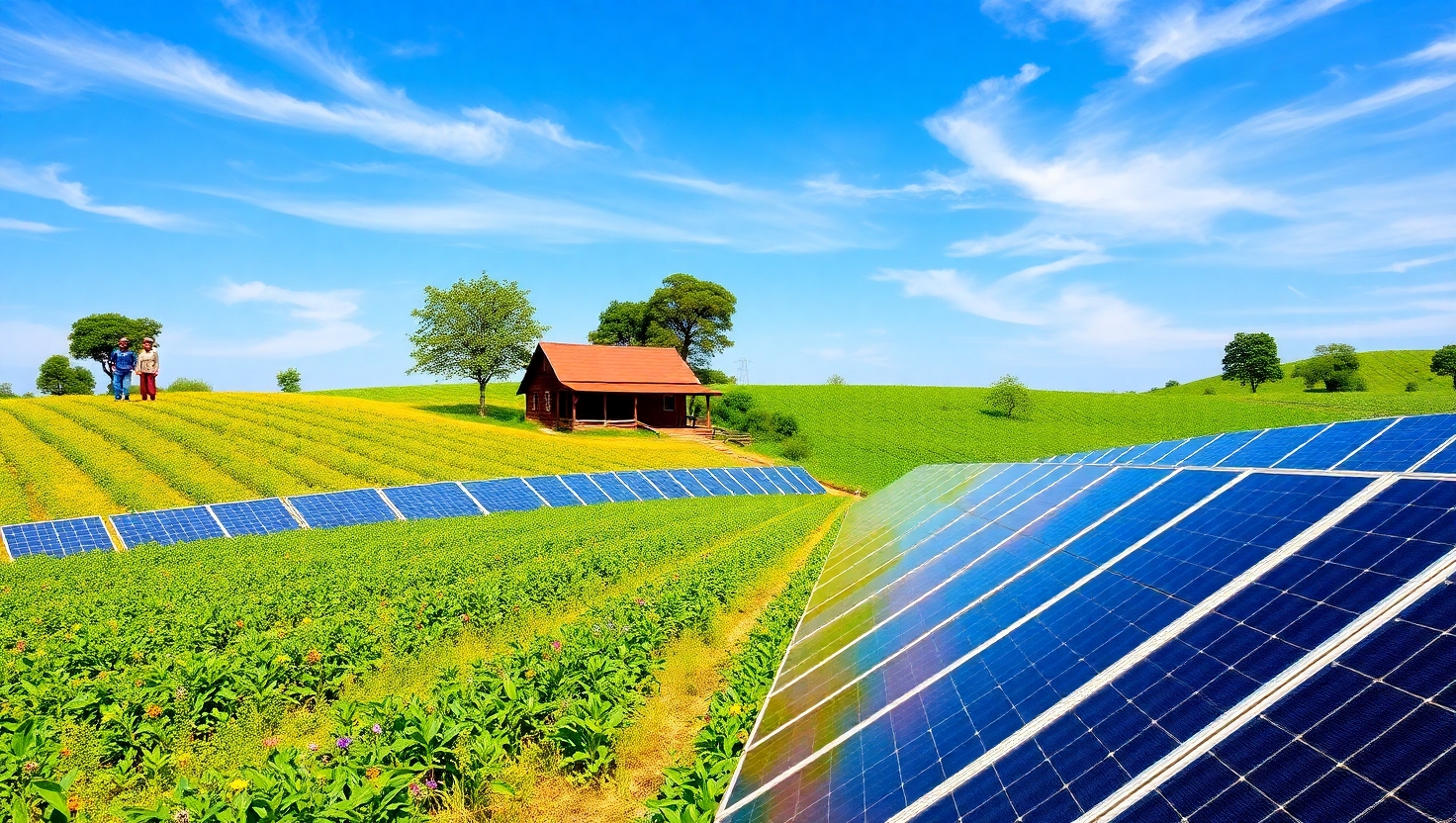Solar-Powered Farms: A Sustainable Solution
In an era where sustainability is no longer just an option but a necessity, farmers and agricultural businesses are turning to innovative solutions to reduce their environmental impact while maintaining productivity. One of the most promising developments in this space is the integration of solar power into farming operations. Solar-powered farms offer a clean, renewable energy source that not only cuts costs but also supports long-term ecological balance.

The Benefits of Solar-Powered Farming
1. Reduced Energy Costs
Traditional farming relies heavily on electricity and fossil fuels for irrigation, machinery, and storage. By installing solar panels, farmers can generate their own power, significantly lowering utility bills. Over time, the savings can offset the initial investment, making solar energy a financially sound choice.
2. Lower Carbon Footprint
Agriculture contributes to greenhouse gas emissions through machinery, transportation, and energy use. Solar power provides a clean alternative, reducing reliance on non-renewable energy sources. By adopting solar technology, farms can operate more sustainably, contributing to global efforts against climate change.
3. Energy Independence
Farmers often face challenges with grid reliability, especially in rural areas. Solar energy, combined with battery storage systems, ensures a steady power supply even during outages. This independence allows farms to operate smoothly without disruptions.
4. Dual Land Use with Agrivoltaics
Agrivoltaics—the practice of combining solar panels with crop cultivation—maximizes land efficiency. Solar panels can provide shade for certain crops, reducing water evaporation and improving yields. Meanwhile, the land beneath and around the panels remains productive, creating a harmonious balance between energy generation and agriculture.
5. Government Incentives and Grants
Many governments offer subsidies, tax credits, and grants to encourage renewable energy adoption in agriculture. These incentives make the transition to solar power more accessible for small and large-scale farmers alike.
Challenges and Considerations
While solar-powered farming presents numerous advantages, there are factors to consider:
- Initial Investment: The upfront cost of solar panels and installation can be high, though financing options and long-term savings help mitigate this.
- Land Requirements: Large-scale solar farms may require significant space, which could compete with crop production. Agrivoltaics offers a solution, but careful planning is needed.
- Maintenance: Solar panels require periodic cleaning and inspection to ensure optimal efficiency.
The Future of Solar-Powered Agriculture
As technology advances, solar solutions for farming will become even more efficient and affordable. Innovations like flexible solar panels, improved battery storage, and smart energy management systems will further enhance the viability of solar-powered farms.
For farmers looking to embrace sustainability without sacrificing productivity, solar energy presents a practical and forward-thinking solution. By harnessing the power of the sun, agriculture can continue to thrive while protecting the planet for future generations.
Would you consider solar power for your farm? Share your thoughts in the comments below.